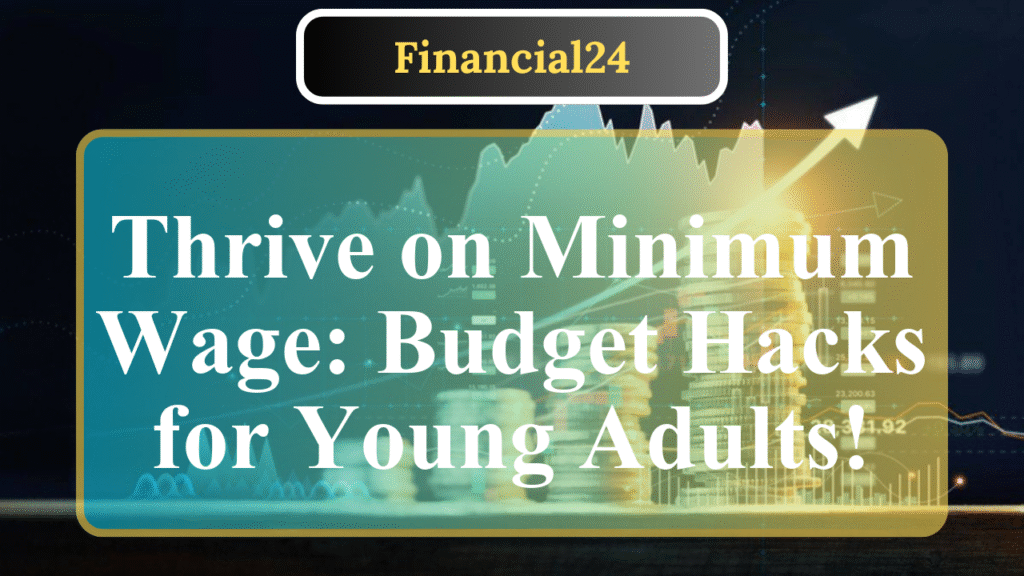“Gen Z is reshaping personal finance with apps tailored to their digital-savvy lifestyle. This article explores top money management apps for 2025, highlighting features like budgeting, investing, and credit building. From YNAB’s zero-based budgeting to Cleo’s AI-driven insights, these tools empower young adults to achieve financial freedom with ease and security.”
Top Apps Empowering Gen Z’s Financial Future
Gen Z, born between 1997 and 2012, is navigating a unique financial landscape with rising costs, student debt, and side hustles. According to Pew Research, 60% of Gen Z worry about student loans, while 35% engage in gig work like freelancing or e-commerce. To manage these challenges, they’re turning to intuitive, mobile-first apps designed for budgeting, saving, investing, and financial education. Below are the best personal finance apps for Gen Z in the USA for 2025, based on their features, usability, and alignment with young adults’ needs.
YNAB (You Need a Budget)
YNAB promotes a zero-based budgeting approach, where every dollar is assigned a purpose, such as bills, savings, or debt repayment. Its real-time syncing across devices ensures accessibility, and its educational resources, including workshops, teach wealth-building strategies. Ideal for disciplined budgeters, YNAB offers a 34-day free trial, with subscriptions at $14.99/month or $109/year. College students get a free year, and up to five users can share a subscription, making it cost-effective for groups. Its hands-on approach suits Gen Zers aiming to control spending and plan for goals like paying off student loans or saving for a home.
Cleo
Cleo stands out with its AI-driven, conversational interface, delivering budgeting tips with humor that resonates with Gen Z. It tracks spending, sets savings goals, and offers credit-building advice. The app’s free version provides basic budgeting, while premium features, starting at $5.99/month, include advanced analytics. Cleo’s sassy notifications and emoji-heavy design make money management engaging, especially for beginners overwhelmed by finance. Its focus on accessibility and fun makes it a favorite among young adults starting their financial journey.
Rocket Money
Formerly Truebill, Rocket Money excels at tracking subscriptions, negotiating bills, and managing budgets. Its intuitive platform offers real-time spending insights and automated savings transfers. The free version covers basic budgeting, while the premium plan ($6–$12/month) includes bill negotiation and net worth tracking. Gen Z appreciates its transparency and ability to manage shared expenses, making it ideal for roommates or couples. Its AI-driven recommendations help users save without manual effort, aligning with Gen Z’s preference for automation.
PocketGuard
PocketGuard helps users avoid overspending by showing “in-pocket” money after accounting for bills and savings goals. Its smart alerts and automatic savings suggestions adapt to spending habits. The Plus membership ($7.99/month or $79.99/year) includes debt payoff plans integrated into budgets. Gen Z loves its simple interface and real-time insights, perfect for students or young professionals tracking daily expenses like coffee runs or subscriptions.
Step
Step is a no-fee banking app designed for teens and young adults, offering a debit card and tools to build credit safely. It connects to bank accounts and provides spending insights, helping users establish financial habits early. With no hidden fees and a focus on financial literacy, Step is ideal for high school or college students learning to manage money responsibly. Its secure platform uses encryption and two-factor authentication, appealing to Gen Z’s emphasis on data privacy.
Public
For Gen Zers interested in investing, Public offers a beginner-friendly platform with no minimum investment. It supports fractional shares, allowing users to invest small amounts in stocks or ETFs. Educational content demystifies markets, and its social features let users follow friends’ portfolios, making investing feel collaborative. Public’s commission-free trading and focus on informed decisions make it a top choice for young adults building wealth in 2025.
Goodbudget
Goodbudget uses a digital envelope budgeting system, allocating funds to categories like rent or entertainment. Users manually input transactions, promoting mindful spending without bank integration. The free version supports basic budgeting, while the premium plan ($8/month or $70/year) allows multiple accounts and shared budgets. Its simplicity and privacy appeal to Gen Zers prioritizing intentional spending and avoiding oversharing financial data.
Oops
Created by a Gen Z entrepreneur, Oops takes an “anti-budgeting” approach, offering weekly spending recaps and an “oops” button to flag regretful purchases. It compares spending to peers, fostering awareness without strict budgets. The free app, with premium in-app purchases, suits beginners learning to curb impulse buys. Its shame-free vibe resonates with Gen Z, though it’s less robust for heavy debt management.
Security and Considerations
Most apps use 256-bit encryption and two-factor authentication to protect data, but users should verify security policies and read reviews before linking accounts. Free apps like Cleo and Step offer robust features, while premium options like YNAB and Rocket Money provide advanced tools for a fee. Gen Z should choose apps based on goals—budgeting, investing, or credit building—and avoid over-relying on AI advice without verifying through trusted sources like financial advisors or reputable websites.
Why These Apps Work for Gen Z
These apps cater to Gen Z’s digital-first lifestyle, offering mobile-friendly interfaces, gamified features, and automation. With 84% of Gen Z craving financial literacy (Visa 2023), apps like Cleo and Public provide education alongside practical tools. Their focus on small, consistent habits—like saving $10 weekly or investing spare change—aligns with Gen Z’s entrepreneurial spirit and desire for financial independence.
Disclaimer: This article provides general information and tips on personal finance apps based on available sources. It is not financial advice. Always consult a certified financial advisor for personalized guidance. Verify app security and features before use. Sources include web-based reviews and financial publications.

